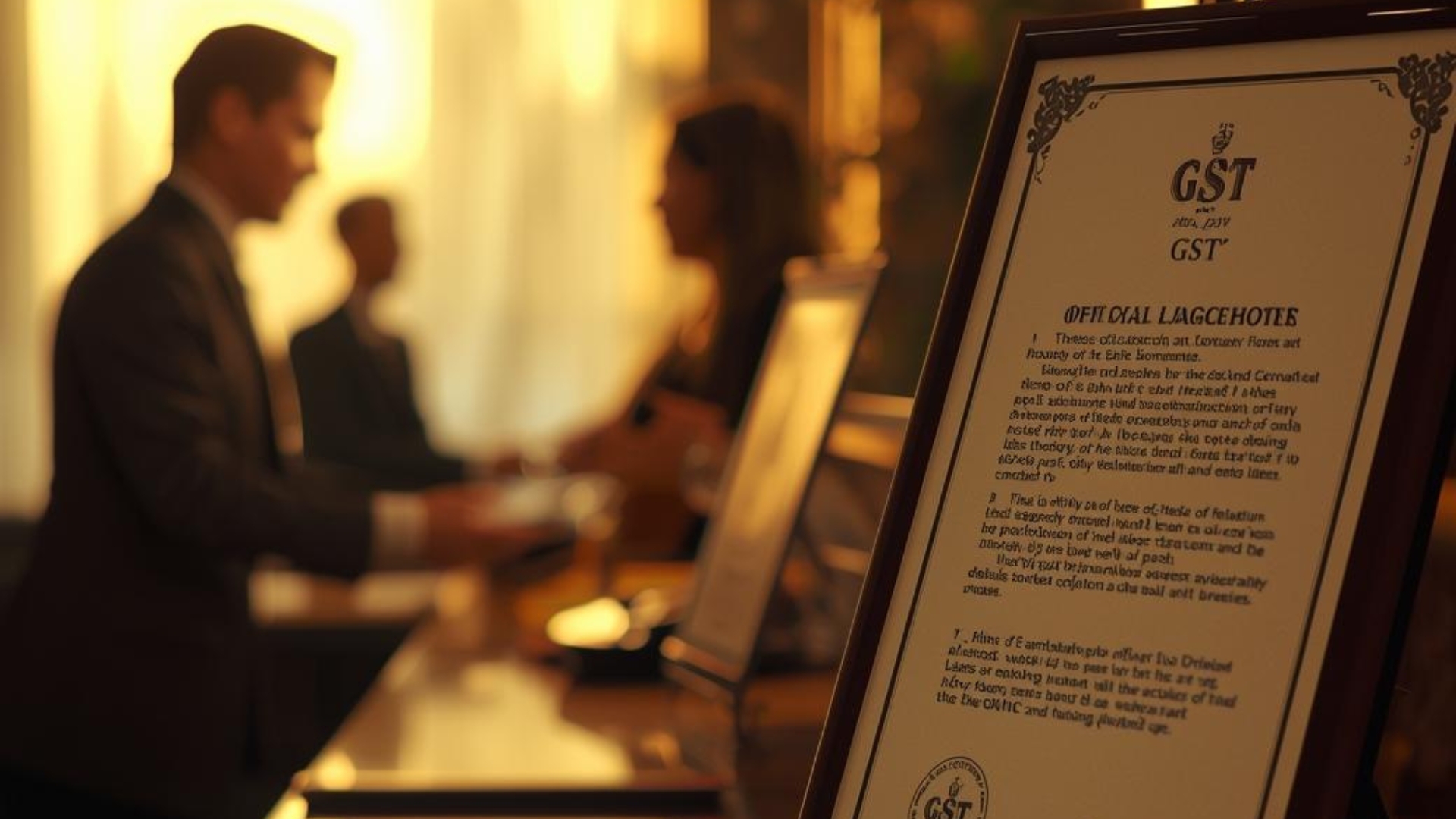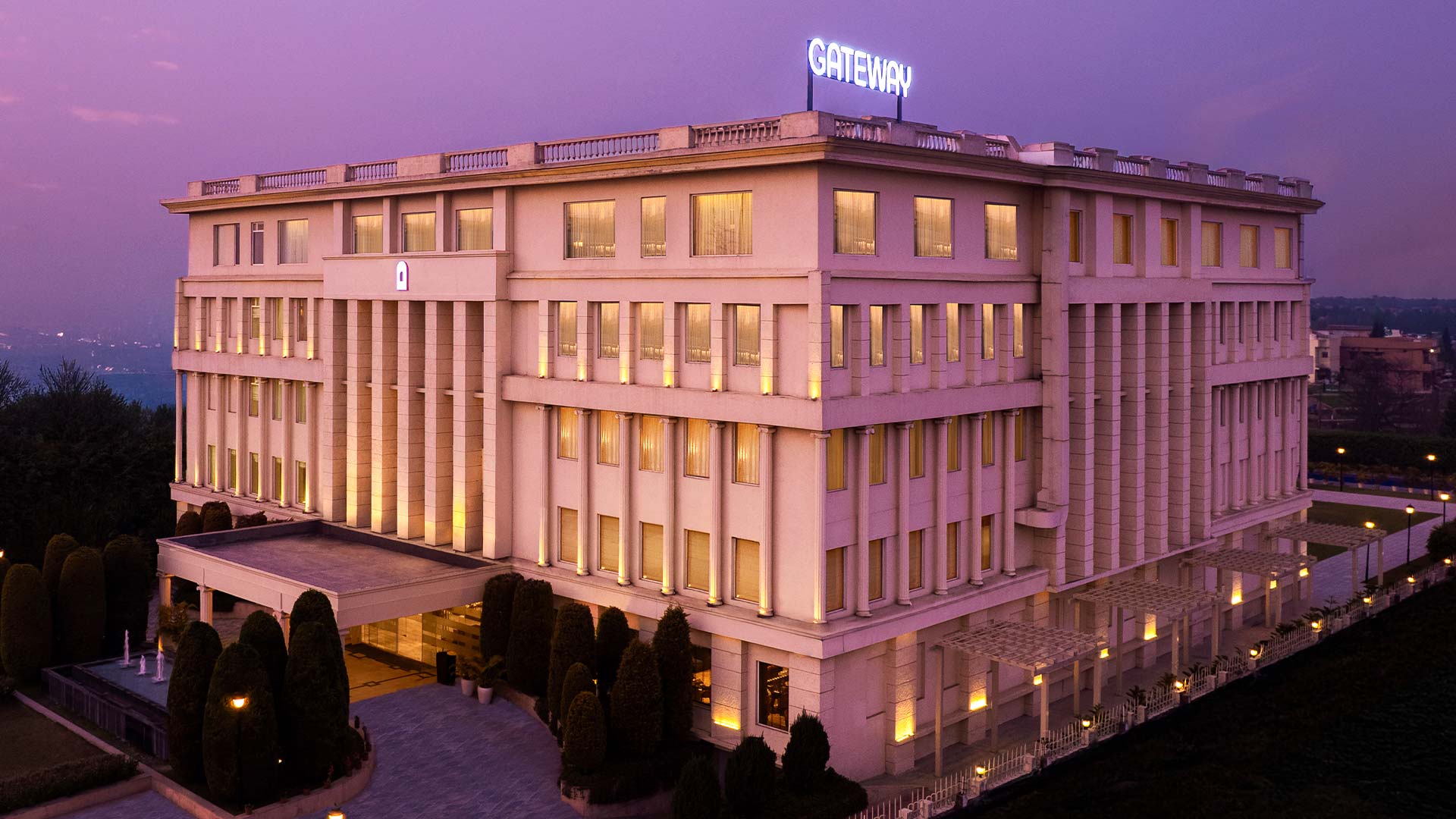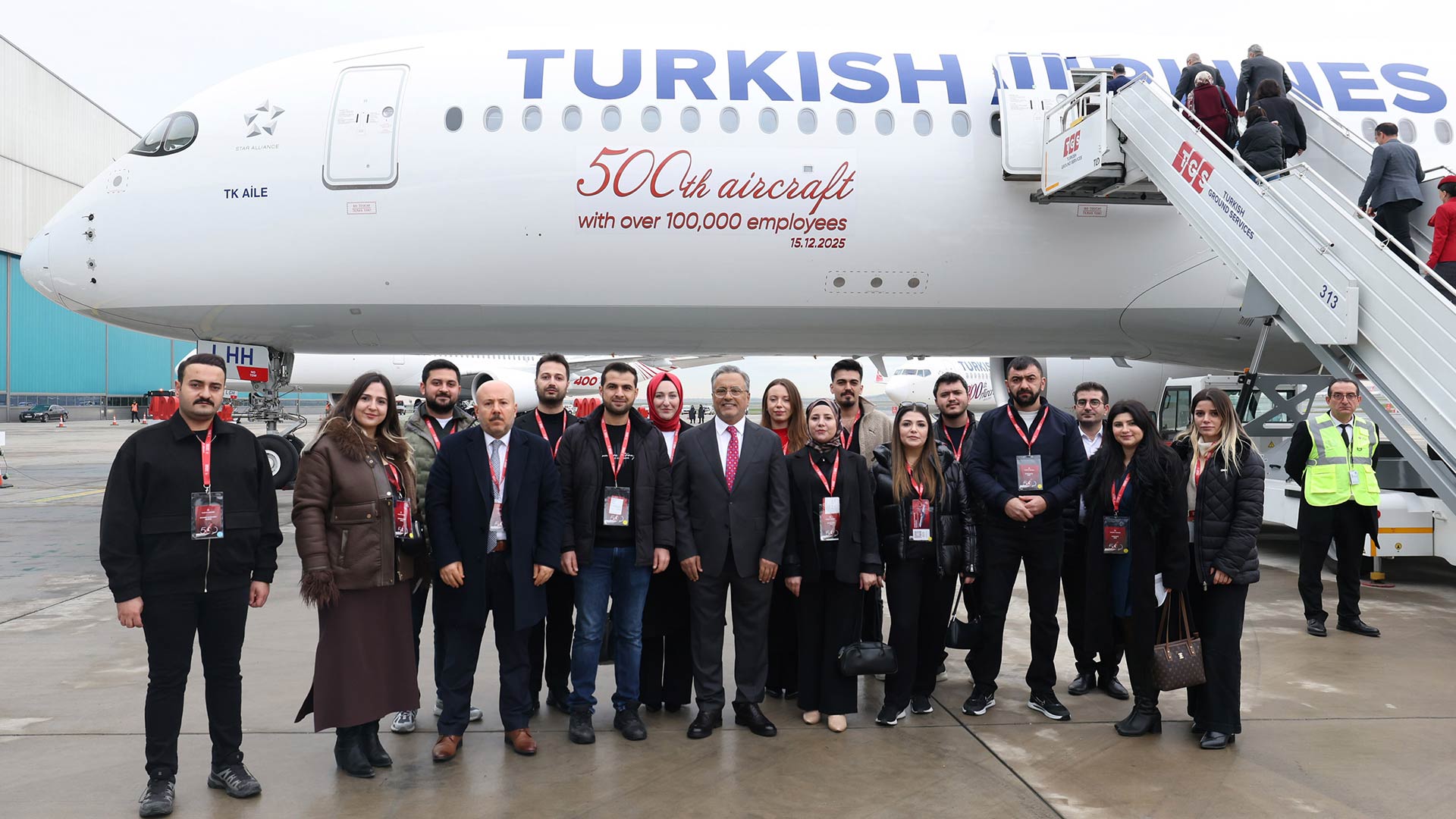Decoding the New GST Rules: What They Mean for Consumers
From check-in to take-off, how the latest GST reforms impact the new age consumer.
By Rachna Virdi
In a move set to bolster India’s hospitality sector, especially the mid-market segment, Finance Minister Nirmala Sitharaman announced a sharp cut in GST rates on hotel stays at the 56th GST Council.
Understanding the new GST Reforms
Here’s a breakdown of the new GST rules in India (as of September 22, 2025) related to flights and hotel stays.
Cheaper hotel stays for many travellers: If you're staying in a hotel room between ₹1,000–₹7,500/night (mid-range or budget-hotel), the cost should go down because of the lower GST (5% vs 12%).
No change for the cheapest stays: Rooms under ₹1,000/night already had no GST; that remains the case. So very low budget options stay the same.
Luxury / premium accommodations unaffected (or still high): If the room costs you more than ₹7,500/night, GST remains at 18%. So the savings apply mostly to mid-tier and budget places.
Airfares: economy vs premium classes: Economy class travel remains taxed at 5%, so for many travellers nothing changes there. Premium economy / business / first class fares will now attract 18% GST instead of 12% — that’s a noticeable jump.
Booking date matters: The rate that applies depends on when you issue the invoice / make payment, not when you travel. So if you book and pay before September 22, the older rates apply; from that date onward, the new rates apply.

The Bigger Picture
The reduction in the GST slab is anticipated to stimulate domestic travel, encouraging more weekend leisure breaks and business mobility. The tax cut is poised to have significant effects on the consumer being a frequent flier or leisure traveller. Rajesh Magow, Co-Founder and Group CEO, MakeMyTrip, said, “The rationalisation of GST slabs is a welcome move that will act as a stimulus to the Indian economy by boosting discretionary income and fuelling consumption across sectors. For travel and tourism, the cut in GST on hotel rooms priced below ₹7,500 will make stays more affordable for a large share of Indian travellers, reinforcing demand in the domestic market.”
The Consumer Perspective
With the tax cuts for mid-range hotels and the unchanged low rate for economy flights, more people might travel domestically, spend stays in mid-tier hotels (instead of cheaper ones or maybe luxury ones), or upgrade slightly. But if you're flying premium/business, your ticket will cost more than it used to after Sept 22.
Here’s what different types of travellers are saying.
Aniket Patil, Chef & Founder, Berlin Brew Beer Garden
If I’m flying economy, prices stay the same. But for premium economy or business, I’ll pay more due to higher GST. On the plus side, decent hotels and dining out are now more affordable. So while upfront flights cost more, cheaper stays and meals make mid-range travel feel smarter.

Aniket Patil, Chef & Founder, Berlin Brew Beer Garden.
Rinka Jha, Co-Founder, Two Gud Sisters
The new GST rules make travel simpler and more affordable, especially for food lovers and leisure travellers. Clearer bills help frequent flyers plan better without hidden costs. This boost to hospitality encourages exploring new places and experiences. Overall, the changes let travellers focus on enjoying their journey, not the complexity.

Rinka Jha, Co-Founder, Two Gud Sisters.
Tarun Pugalia, Founder & MD, Smartags
The new GST reforms make travel more affordable and transparent, boosting airfares and hospitality demand. This rise in travel means more foot traffic at airports, transit hubs, and tourist spots—perfect for our Digital Out-of-Home platforms. While luxury travel sees higher taxes, it sharpens audience targeting for premium brands. Overall, these changes enhance our platform’s role in connecting brands with travellers in real time.

Tarun Pugalia, Founder & Managing Director, Smartags.
Esha Bhambri, Founder, House of FETT
The new GST rules are definitely a hot topic for travellers like me—both leisure seekers and frequent fliers. Higher costs push us to plan smarter, mixing boutique stays with unique experiences and exploring hidden gems. As frequent fliers, we focus more on value, loyalty programs, and convenient, joyful trips. These changes don’t stop travel—they help us curate more mindful, meaningful journeys.

Esha Bhambri, Founder, House of FETT.
Aakriti Grover, Founder, Flirtatious
As someone always on the move, I see the new GST reforms not as a barrier but a reality check. Travel’s become a lifestyle, not a luxury. While fares and stays may rise, it pushes us to be more intentional—choosing meaningful trips and balancing splurges smartly. Whether flying budget and upgrading stays, or the opposite, GST won’t stop travel. It’ll just make us sharper—and maybe even more stylish—in how we plan our journeys.

Aakriti Grover, Founder, Flirtatious.
Devangana, Founder, Brain Bristle
As a frequent traveller, the new GST offers both relief and challenges. Economy fares drop to 5%, easing costs for budget-conscious travellers like students and families. Meanwhile, premium and business class rates rise to 18%, making luxury travel more expensive. This could lead to fewer upgrades and more selective travel choices. Ultimately, these changes will reshape how travellers balance cost and experience, and how airlines respond.

Devangana, Founder, Brain Bristle.
Apurv Modi, Managing Director, Abhay Health
The recent GST changes impact how frequent and leisure travellers plan their trips. Luxury flights, high-end hotels, and package tours may become slightly cheaper upfront. These rules bring clearer billing and better input credits for travel businesses. Over time, this means fairer prices, improved service, and no surprises for travellers. Though it might pinch now, it’s a step toward a healthier, more transparent travel industry.

Apurv Modi, Managing Director, Abhay Health.
Dushyant Bhalla, Founder, Aabee
The new GST reforms draw a clear line between mid-range and luxury travel. Mid-market hotels benefit from lower taxes, while business class flights and private jets face higher GST, making luxury travel pricier. For discerning travellers, true luxury is about value and exclusivity beyond cost. Expect higher prices for premium flights and luxury experiences. These changes aim to make travel more accessible for most, while shifting the tax load to premium travellers.

Dushyant Bhalla, Founder, Aabee.
Anand Lukhi, Founder & CEO, Lukson Jewels
The recent GST changes will subtly influence travel choices. For frequent flyers, easier tax refunds make airport shopping more appealing. Leisure travellers value clear GST on imported goods, as every rupee matters abroad. Clear, simple tax rules build confidence and boost cross-border buying. Ultimately, transparent GST benefits both travellers and brands by fostering trust and value.

Anand Lukhi, Founder & CEO, Lukson Jewels.
What Travellers Can Do
1. If you’re planning to travel after Sept 22, try booking before that date if you're going for premium class travel (hotel or flight) and want to lock in the lower rate.
2. Check your hotel’s nightly rate — if it's just under or over the ₹7,500 threshold, the difference in tax can be meaningful.
3. When comparing options, look at “all-in cost” (room + taxes) rather than base price, because GST is part of what you pay.
4. For business travellers: “without ITC” for hotels in that ₹1,000-₹7,500 slab means the hotel operator may not be able to claim input tax credits. It might subtly affect pricing or service.
































